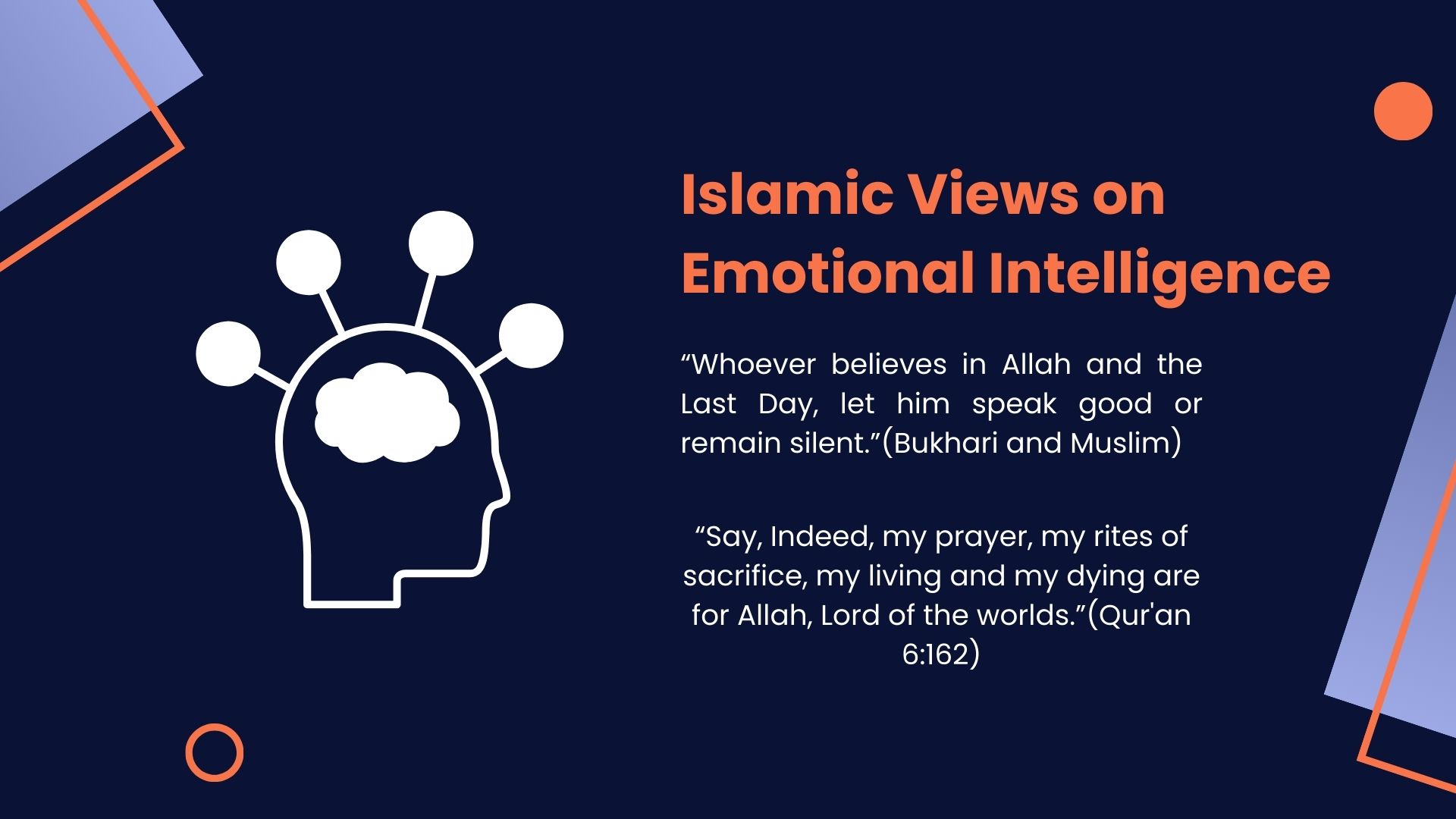Islamic Views on Emotional Intelligence In today’s fast-paced world, emotional intelligence (EI) has become a vital skill. It is the ability to recognize, understand, and manage our own emotions while also recognizing and influencing the emotions of others. While the term may seem modern, the essence of emotional intelligence is deeply rooted in Islamic teachings.
What is Emotional Intelligence in Islam?
Emotional intelligence includes five core areas: self-awareness, self-regulation, motivation, empathy, and social skills. Islam, through the Qur’an and Hadith, offers profound guidance in each of these areas. The life of Prophet Muhammad (peace be upon him) is a living example of emotional mastery, compassion, and wisdom.
1. Self-Awareness in the Light of Islam
Self-awareness is the foundation of emotional intelligence. It means recognizing one’s emotions, strengths, and limitations. The Qur’an encourages believers to reflect on their actions and intentions.
“And in yourselves. Then will you not see?”(Qur’an 51:21)
Islam promotes deep inner reflection (muhasaba) to understand one’s emotional states and intentions. Umar ibn Al-Khattab (RA) famously said, “Hold yourselves accountable before you are held accountable.” This daily introspection helps Muslims become more emotionally aware and spiritually conscious.
2. Self-Regulation: Controlling Anger and Desires
Controlling one’s emotions, especially anger, is a major part of self-regulation. The Prophet Muhammad (peace be upon him) emphasized the importance of managing anger:
“The strong is not the one who overcomes the people by his strength, but the strong is the one who controls himself while in anger.”(Bukhari)
Fasting, prayer, and remembrance of Allah (dhikr) are tools Islam provides to help regulate emotions and maintain inner peace. Emotional regulation in Islam isn’t about suppression but about mastery and discipline.
3. Motivation: Acting with Sincerity and Purpose
In Islam, motivation stems from sincerity (ikhlas) and the desire to please Allah. Unlike worldly motivations, Islamic motivation is internal and deeply spiritual.
“Say, Indeed, my prayer, my rites of sacrifice, my living and my dying are for Allah, Lord of the worlds.”(Qur’an 6:162)
This deep-rooted motivation creates resilience and a strong emotional core. A believer stays focused, driven, and emotionally balanced, even in difficult times.
4. Empathy and Compassion in the Sunnah
Empathy, a key part of emotional intelligence, was a hallmark of the Prophet’s character. He was deeply empathetic to the poor, the oppressed, and even his enemies.
“We have not sent you, [O Muhammad], except as a mercy to the worlds.”(Qur’an 21:107)
He would listen attentively, care for the vulnerable, and treat everyone with dignity. Emotional intelligence in Islam is not only personal but also relational, fostering a just and compassionate society.
5. Social Skills: Building Meaningful Relationships
Islam teaches excellent manners (akhlaq), respect, and effective communication—key elements of social intelligence. The Prophet (peace be upon him) advised:
“Whoever believes in Allah and the Last Day, let him speak good or remain silent.”(Bukhari and Muslim)
The emphasis on honesty, patience, and positive interaction strengthens community bonds and emotional well-being.
Conclusion
Emotional intelligence, though a modern term, has always been integral to Islamic ethics and spirituality. Through the Qur’an and the Sunnah, Islam provides a comprehensive framework for emotional awareness, control, and empathy. By aligning emotional intelligence with Islamic values, believers can lead more meaningful, balanced, and fulfilling lives—both personally and socially.


Leave A Comment